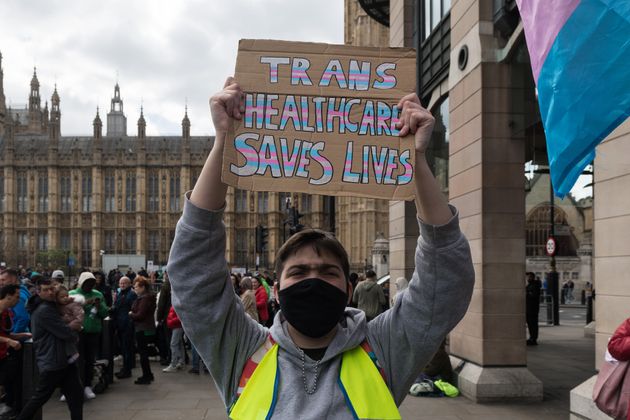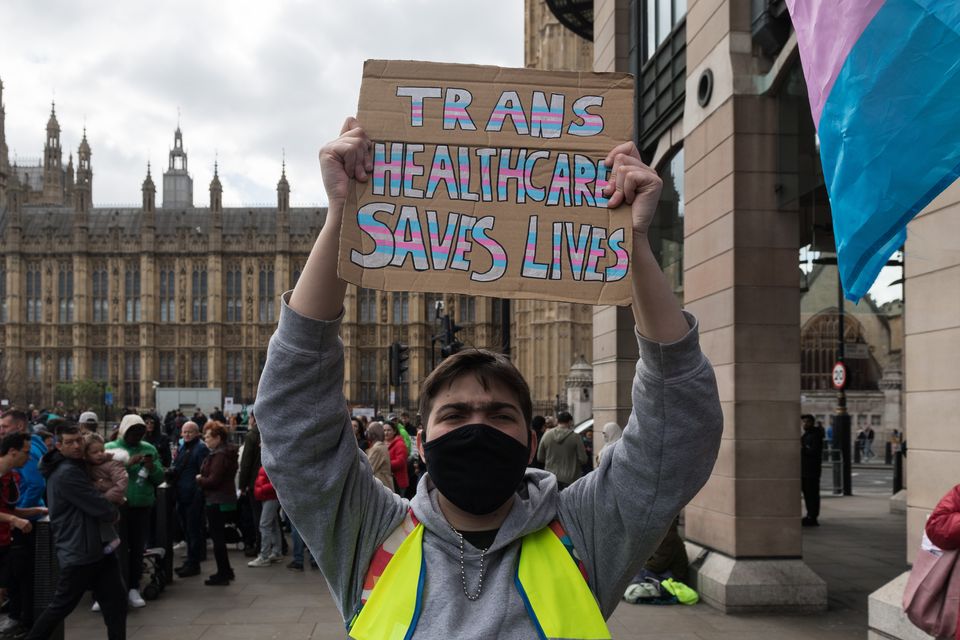Just ten days after being elected, the government is already facing some internal turmoil over its stance on trans rights – specifically, over its restrictions on puberty blockers.
Here’s why Labour MPs are calling out the health department, why it matters, and how health secretary Wes Streeting has responded.
Advertisement
What has happened?
Streeting has decided to extend a ban – first implemented by the Conservatives – on puberty blockers prescribed to children for gender-related issues.
Puberty blockers are used to help children who start puberty very early.
And, for the last 30 years, they have also been used for those under 18 who are unsure of their gender identity and want to delay reaching sexual maturity.
It prevents physical signs of puberty appearing, like facial hair.
But, then-health secretary Victoria Atkins announced using puberty blockers for young people experiencing gender-related problems would be banned in both in the NHS and the private sector.
She announced the news in May, just before the dissolution of parliament – the emergency ban was implemented in England, Wales and Scotland.
Advertisement
That decision is now being legally challenged in the High Court by The Good Law Project and pro-trans group, TransActual.
The campaigners say the ban did not undergo sufficient parliamentary scrutiny before it was passed, and a statutory committee was not consulted.
According to the government’s legal department in the ongoing case, the government “is minded to renew the emergency banning order with a view to converting it to a permanent ban, subject to appropriate consultation.”
Why did the Conservative government – and now its Labour successor – ban the puberty blockers?
Atkins’ decision came after the Cass review – by paediatrician Dr Hilary Cass – into the NHS services for trans children and young people was published earlier this year.
The review said the evidence for the long-term safety of using puberty blockers was weak, and called for more research into its use.
Advertisement
Who within the Labour Party has criticised this?
Labour, which has struggled to unite the party over its stance on trans issues in the past, is now facing internal backlash over its decision to extend the controversial Tory ban.
Stella Creasy – a frontbencher under Ed Miliband – said: “Cass review recommended caution, not exclusion, for any treatment and drew attention to shortcomings of previous GIDs service.
“To those asking will always be MP who listens to demand for better research & evidence base for help for those with gender dysphoria, not abandons them.”
Backbencher Zarah Sultana lashed out at Streeting on X, saying their party’s manifesto vowed to “remove indignities for trans people who deserve recognition & acceptance”.
Advertisement
She added: “That entails ending the Tories’ ban on puberty blockers. Young people – cis & trans – must have access to healthcare they need. I’ll always stand with the trans community.”
Fellow backbencher Nadia Whittome said: “Only a small number of young people are prescribed puberty blockers.
“Those who are often describe them as lifesaving. I know the distress the puberty blockers ban is causing them. No matter what happens in court, I will continue fighting for the government to scrap it.”
Clive Lewis, who ran in the 2020 leadership contest, wrote on X: “I’ve met young people who’ve been prescribed puberty blockers. Some told me they’d helped lift them from depression & probably saved their life. A blanket ban is wrong & not what Cass recommended. Careful, clinical provision is the way forward, not this politicisation.”
Advertisement
LGBT+ Labour also wrote to Streeting, saying the Cass review also called for a cut in waiting lists for trans youth and long-term staffing issues to be addressed.
It demanded “comprehensive training for NHS staff on how best to support and work sensitively with trans and questioning young people, and better address the current toxicity of public debate which is actively harmful to young people”.
The group called for Streeting to set out a timeline of a clinical trial for the puberty blockers, adding: “We hope that, under this new Labour government, progress can be made to reset the public discussion on trans rights, centring on the humanity of, and compassion for, each individual trans person.”

How has Streeting responded to criticism?
In a thread on X (formerly Twitter), Streeting acknowledged there’s “lots of fear and anxiety” around the decision he has made, but the “safety of children must come first”.
Advertisement
He argued the Cass review did not find enough evidence about puberty blockers’ long-term impact, adding: “The evidence should have been established before they were ever prescribed.”
The health secretary said the NHS is setting up a clinic trial with National Institute for Health and Care Research so the effects can be “safely monitored” to prove the evidence required.
He said puberty blockers’ use in children who start puberty much too early has been “extensively tested” and met safety requirements – but the same is yet to be said for gender dysphoria.
Streeting explained: “This is because the puberty blockers are suppressing hormone levels that are abnormally high for the age of the child.
“This is different to stopping the normal surge of hormones that occur in puberty. This affects children’s psychological and brain development.”
Advertisement
He added: “I am determined to improve the quality of, and access to, care for trans people.”





















